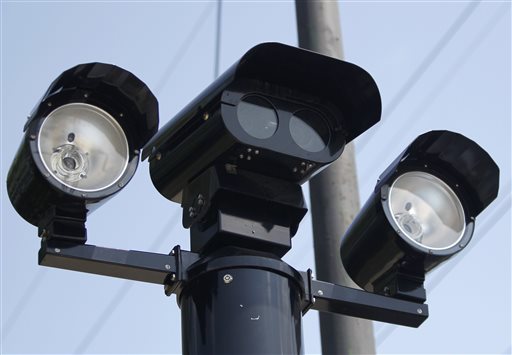Mayor tries to quell furor over Chicago's red-light camera system
Tuesday, July 29, 2014
CHICAGO - Mayor Rahm Emanuel's administration is scrambling to contain a furor over the city's red-light camera system, which may have ticketed thousands of motorists under questionable circumstances.
Prompted by a Chicago Tribune investigation that revealed unexplained spikes in tickets issued, eight aldermen have asked the city's top watchdog to launch a probe into the ticket surge and private attorneys are gathering information for a possible class-action lawsuit.
Emanuel has vowed to give motorists an extra chance to appeal tickets and to refund any issued improperly. More than 13,000 red-light tickets costing $100 each were generated at a dozen intersections where there were dramatic spikes in violations logged.
But critics say that simply writing refund checks won't restore public trust the city's system for enforcing violations.
"These spikes, you can tell they (the tickets) are fraudulent," said Scott Waguespack, one of the aldermen who sent Chicago Inspector General Joseph Ferguson a letter asking for an investigation. "We are talking millions of dollars here and something is fundamentally wrong with the system."
In its review of tickets issued since 2007, the Tribune found intersections where violations increased from a few per day to as many as 56.
Neither Emanuel nor the city transportation department has suggested the possibility of scrapping the cameras, as Los Angeles, Houston and a few dozen other cities have in recent years amid questions about their effectiveness. The number of cities using the cameras peaked at 540 in 2012. By the end of 2013, that number had dropped to 503, according to the Insurance Institute of Highway Safety, a nonprofit research group.
The cameras have stirred a range of protests, including that they are intended more for raising revenue than ensuring safe streets. The Chicago system has generated more than $500 million since it was installed in 2003..
Chicago's troubles have been compounded by federal charges filed against a former city official accused of accepting cash, an Arizona condominium and other gifts to steer city contracts to the red-light company that started the program. Emanuel fired the firm even before the charges were filed.
Emanuel said the program has deterred motorists from running red lights.
"I am angry if the system is inoperable," Emanuel told reporters last week.
The city has yet to explain the ticket spikes. Speculation has focused on the possibility the cameras were malfunctioning or being manipulated to generate more tickets.
At least one alderman said the city should consider abandoning the cameras.
"There is a real lack of faith in the public for these red light cameras," said Alderman Robert Fioretti.
Waguespack complained the city has refused to answer questions about the system, including the length of time the lights are yellow to more fundamental questions about who is actually running it.
"We want to know who is running the thing... who is accountable and who is making the technical decisions that are tied to the spikes," said Waguespack.
Patrick Keating, an attorney handling two lawsuits, has maintained that there is no way technicians can be adequately examining the videos of the infractions to determine if tickets are warranted.

